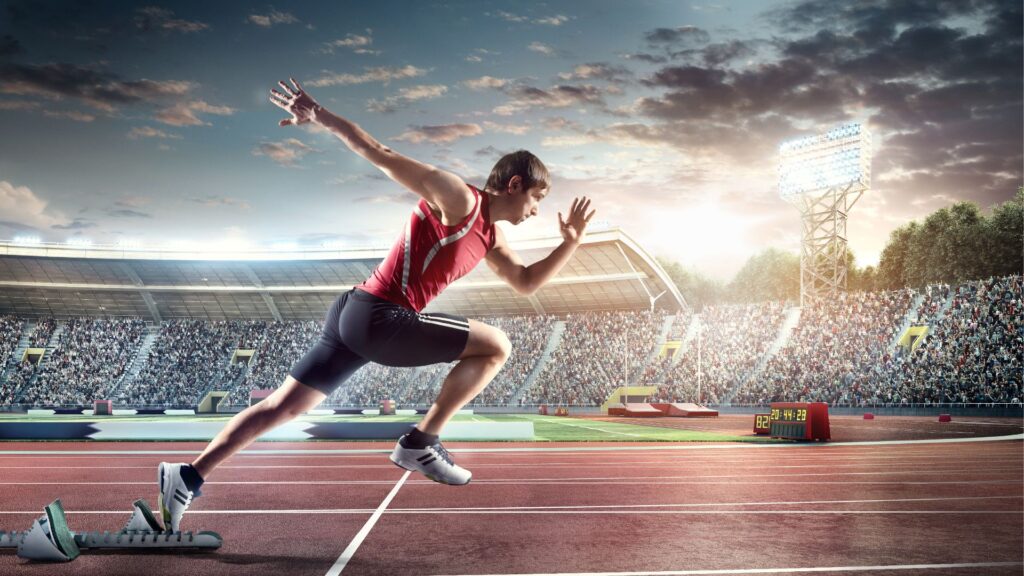
The relationship between athletics and male reproductive function is complex and can be influenced by many factors. We have always known that physical activity is good for physical and mental health. It is a low-cost and high-efficacy method for preventing and treating many types of health conditions like diabetes, obesity, depression, anxiety etc. male reproduction. This is true as long as exercise is moderate. Intense or prolonged athletic activities may transiently impact reproductive function. Male infertility in athletes is a multifaceted issue that can arise due to various factors associated with intense physical training, environmental conditions, and lifestyle choices. While athletes are often portrayed as epitomes of health and fitness, the rigorous training and competitive demands they face can sometimes have detrimental effects on their reproductive health.
- Intense Exercise: While moderate exercise is generally beneficial for overall health, extreme levels of physical activity, particularly endurance training and weightlifting, can disrupt hormonal balance and sperm production. Excessive exercise may lead to increased levels of cortisol, a stress hormone, which can suppress testosterone production and impair sperm quality.
- Heat Exposure: Athletes engaging in activities such as cycling, long-distance running, or certain sports like football may experience increased scrotal temperatures due to prolonged periods of sitting or wearing tight-fitting clothing. Elevated scrotal temperature can negatively impact sperm production and quality.
- Nutritional Deficiencies: Intensive training schedules may sometimes lead athletes to neglect proper nutrition, resulting in deficiencies in essential nutrients crucial for reproductive health, such as zinc, vitamin D, and antioxidants. Poor dietary habits or extreme weight control measures can also contribute to infertility.
- Anabolic Steroid/ drugs use: Some athletes resort to anabolic steroids to enhance performance and muscle mass. However, the use of these substances can disrupt normal hormone levels, including testosterone, and suppress sperm production, leading to infertility.
- Psychological Stress: The pressures of competition, performance expectations, and the demanding lifestyle of professional athletes can induce significant psychological stress. Chronic stress may affect hormonal balance and reproductive function, potentially contributing to infertility.
- Environmental Factors: Athletes are often exposed to environmental toxins and pollutants, either through training facilities, competition venues, or travel. Exposure to substances like pesticides, heavy metals, or industrial chemicals can interfere with reproductive health and fertility.
- Overtraining Syndrome: Athletes who push their bodies to the limit without adequate rest and recovery may experience overtraining syndrome, characterized by fatigue, decreased performance, and hormonal imbalances. Overtraining can disrupt the hypothalamic-pituitary-gonadal axis, which regulates reproductive function, leading to infertility.
- Injuries and Trauma: Sports-related injuries, particularly those affecting the groin or testes, can cause physical trauma and inflammation, potentially impairing sperm production or causing structural damage to reproductive organs.

Handling these concerns :
Addressing these concerns and balancing exercise and reproductive health is essential for male athletes to ensure optimal performance and overall well-being. Here are some tips to help maintain this balance:
- Stay Hydrated: Proper hydration is crucial for both exercise performance and reproductive health. Dehydration can affect sperm quality and testosterone levels. Always drink sufficient water before, during, and after your workouts.
- Maintain a healthy and Balanced Diet. Eating a well-balanced diet rich in nutrients is important for overall health, including reproductive health. Make sure that your diet consists of fruits, vegetables, whole grains, lean proteins, and healthy fats for good health. Avoid excessive consumption of processed foods, sugary drinks, and alcohol, as they can negatively impact reproductive function.
- Avoid Overtraining or improper training. While exercise is beneficial for overall health, excessive training can lead to hormonal imbalances and reproductive issues in men. Make sure to incorporate rest days into your workout routine and avoid overtraining syndrome. Sometimes incorrectly executed exercise or poorly developed training programs may result in adverese health effects.
- Protect yourself from injuries specially in the the Groin Area. Certain sports or activities may put the groin area at risk of injury, which can impact reproductive health. Wear protective gear such as athletic cups during contact sports or activities where there is a risk of impact to the groin.
- Maintain a Healthy Body Weight. Being either overweight or underweight can affect reproductive health and hormone levels in men. Aim to maintain a healthy body weight through a combination of regular exercise and a balanced diet.
- Manage Stress. Chronic stress can negatively impact reproductive health by affecting hormone levels. Practice stress-reducing techniques such as meditation, yoga, deep breathing exercises, or engaging in hobbies you enjoy.
- Get Sufficient Sleep. Quality sleep is crucial for overall health and hormone regulation, including testosterone production. Aim for 7-9 hours of uninterrupted sleep per night to support both exercise recovery and reproductive health.
- Avoid heat stress. Athletes and coaches should take precautions to minimize heat exposure during training and competition. This includes staying hydrated, wearing appropriate clothing that allows for heat dissipation, taking breaks in shaded or cooler areas, and avoiding prolonged exposure to hot environments whenever possible. Adequate nutrition, including antioxidant-rich foods, may also help mitigate the negative effects of heat exposure on sperm quality. Antioxidants such as vitamin C, vitamin E, and selenium have been shown to protect sperm from oxidative damage caused by heat stress.
- Avoid Performance-Enhancing Drugs. In the world of sports, world is grappling with “doping epidemics” today goers to people just interested in improving their looks without effort. The use of performance-enhancing drugs, such as anabolic steroids, can have serious implications for reproductive health, including infertility and sexual dysfunction. Avoid the use of these substances and opt for natural methods to enhance performance.
- Regular Check-ups. Schedule regular check-ups with your doctor to monitor your reproductive health and address any concerns or issues that may arise.
Physical exercise and sports have been observed to have the potential for affecting male’s reproduction function in both positive and negative ways. In males, sexual and spermatogenetic functions might be maintained and even improved by good physical activity, whereas impairments in sexuality and fertility have also been observed due to excessive training and drug abuse. By incorporating the tips given above into your lifestyle, you can effectively balance exercise and reproductive health as a male athlete, ensuring optimal performance and well-being both on and off the field.
